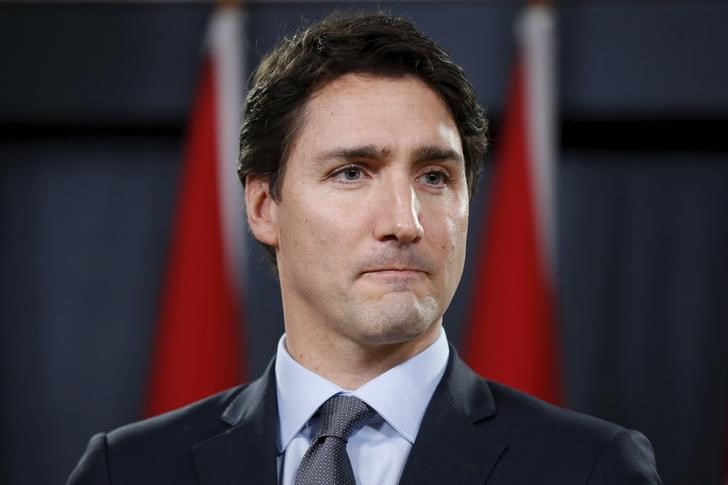By Leah Schnurr
OTTAWA, March 21 (Reuters) - Canada's new Liberal government
will try to revive a flagging economy by unveiling one of the
country's biggest deficits since the 2008 financial crisis in
Tuesday's federal budget, making it a rarity among Group of
Seven peers more focused on austerity.
Prime Minister Justin Trudeau's government is expected to
run a deficit of about C$30 billion ($22.93 billion)- three
times as large as promised during last year's election campaign
- with the focus on infrastructure spending it hopes will spur
hiring and growth. CA/POLL
The drop in the price of oil, a major export for Canada, has
battered the economy, putting it in a brief recession last year
and forcing the Bank of Canada to cut rates twice in 2015. The
government warned last month it would run bigger deficits than
it had anticipated because of the weak growth outlook.
Its move to increase the deficit to spend more aligns it
with some economists and the Group of 20, which has called for
governments to use fiscal and structural policies as stimulus
tools, taking some of the burden off central banks.
"With the arguable exception of Japan ... doing so from a
position of fiscal strength, which Canada is doing, is
absolutely not seen in any other G7 country," said Jacob
Kirkegaard, Washington-based senior fellow at the Peterson
Institute for International Economics.
Trudeau, who took office in November, has two big
advantages. Canada escaped the credit crisis largely unscathed,
leaving its federal debt-to-GDP ratio at a relatively low 31
percent, according to the country's Finance Department. His
government also holds a majority in the country's Parliament,
leaving it free to pass legislation without support from other
parties.
While the former Conservative government of Stephen Harper
ran a stimulus plan to combat the 2008 financial crisis, it
emphasized rebalancing the books. Trudeau instead campaigned on
a plan to take Canada back into deficit.
"Britain and Germany are firmly on the other side. Quite
frankly, with the conditions we have in Canada, I'm happy to
showcase that we think drawing in investment and creating
opportunities for sustained growth ... are where we want to be,"
Trudeau said at a recent event in New York.
In the British budget last week, Finance Minister George
Osborne stuck to his plan to turn the deficit into a surplus by
2020
Other industrialized nations will be watching Trudeau's
moves but are not expected to follow suit in the short term,
given their own financial challenges and domestic politics,
Kirkegaard said.
Former Bank of Canada Governor David Dodge, who was
appointed by a Liberal prime minister, said Canada's use of
fiscal stimulus could be a good example for its U.S. neighbor.
But he added there was no simple formula that worked for every
country.
The Conservatives and other critics said Ottawa risked
letting debt get out of control.
"I do not think it's going to be effective," said William
Robson, president of the C.D. Howe Institute. "I will be
watching closely to see if there's any kind of credible plan
back to balance in this budget."
($1 = 1.3081 Canadian dollars)
